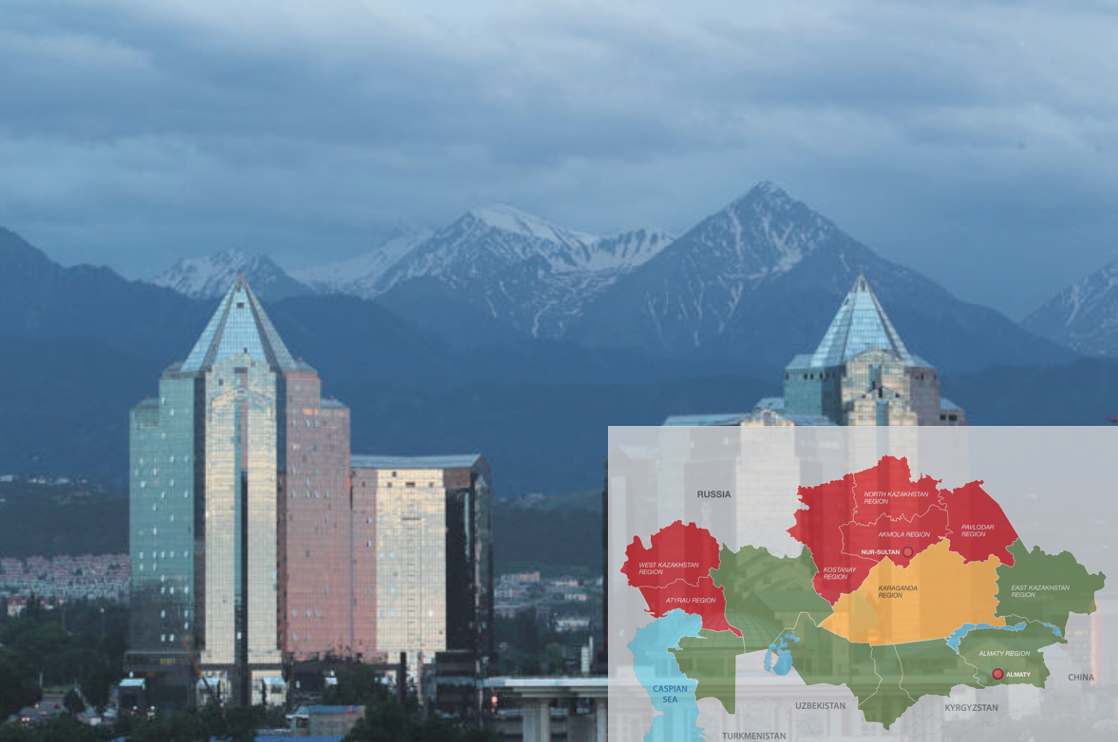NUR-SULTAN – Working hours for cafes, restaurants, and trade malls were restricted in Almaty, based on the Jan. 28 decree of Almaty’s chief sanitary doctor Zhandaberk Bekshin, among other restrictions.
The new decree restricts the operating hours of trade malls from 10 a.m. to 8 p.m. on weekdays and closes them for weekends.
Cafes and restaurants can now work only from 9 a.m. until 8 p.m to avoid crowds in dining places. The occupancy, however, should not exceed 50 percent.
Theatres and cinemas that recently resumed their work will also be closed.
Closed-door markets will work until 5 p.m. only on weekdays, and outdoor markets will work until 5 p.m. on weekdays and Saturday only.
Spa centres, banyas, and swimming pools will work from 8 a.m. to 9 p.m. only on weekdays as well.
Speaking at a press briefing Jan. 27, Bekshin urged people to be cautious and follow preventive measures. “For us to return to normal life and avoid the risk of reinfection, we need to keep what we achieved,” he said.
According to the epidemiological assessment conducted by the Kazakh Healthcare Ministry, Almaty is currently in a high risk red zone.
“The new COVID-19 statistics have raised concerns. Daily cases do not go below 130 people. First of all, this can be due to the seasonal peak of virus infections. Even in the worst case scenario, the healthcare system is ready to fight COVID-19,” said Bekshin.
From Oct. 6, 2020, Kazakhstan requires its citizens to present negative COVID-19 results when they arrive from abroad, and in case they don’t, citizens are placed in quarantine where they get tested.
Despite the new requirement, which is not yet mandatory, some citizens still choose to be sent to quarantine to get tested for free, which, according to Bekshin, puts other people at risk.
“Returning (to Kazakhstan), nearly 90 percent of our citizens pass the test in advance (in a country of departure), and go home. But some people try to save (money), they come and the state takes them (to a quarantine facility) for free, and tests them for free,” he said.
More than 13,000 citizens arrived in Almaty without a medical proof, he added.
As of Jan. 28, there have been 182,530 coronavirus cases in Kazakhstan, including 21,685 in Almaty, the second highest after the Kazakh capital Nur-Sultan. 2,476 people have died from coronavirus and Almaty has had the highest death toll, with the virus there сlaiming the lives of 429 people.
Over the past two months, the epidemiological situation has been worsening in the country. Kazakhstan is now in the red zone, as coronavirus cases are on the rise.
“Four regions – West Kazakhstan and Atyrau regions and cities of Almaty and Nur-Sultan – have moved from a low risk to high risk red zone. There are also the North Kazakhstan, Pavlodar, Akmola and Kostanai regions. The Karaganda Region is in a moderate risk yellow zone. Other regions are in the green zone,” said First Deputy Healthcare Minister Marat Shoranov at a Jan. 27 press briefing.
The number of cases grew 10 percent in January compared to December due to an increase in the cases in the eight regions in the red zone that together accounted for 73 percent of all cases in Kazakhstan.
“During the epidemiological analysis of the infection rates, 50 percent of the cases were detected when people sought medical help with complaints, 33 percent – when checking contact people that were infected, 16 percent – during a medical checkup, the rest were (internationally) imported cases (1 percent). This shows that the virus continues to spread due to failure to comply with quarantine measures, visiting crowded places and not using personal protective equipment,” said Shoranov.

